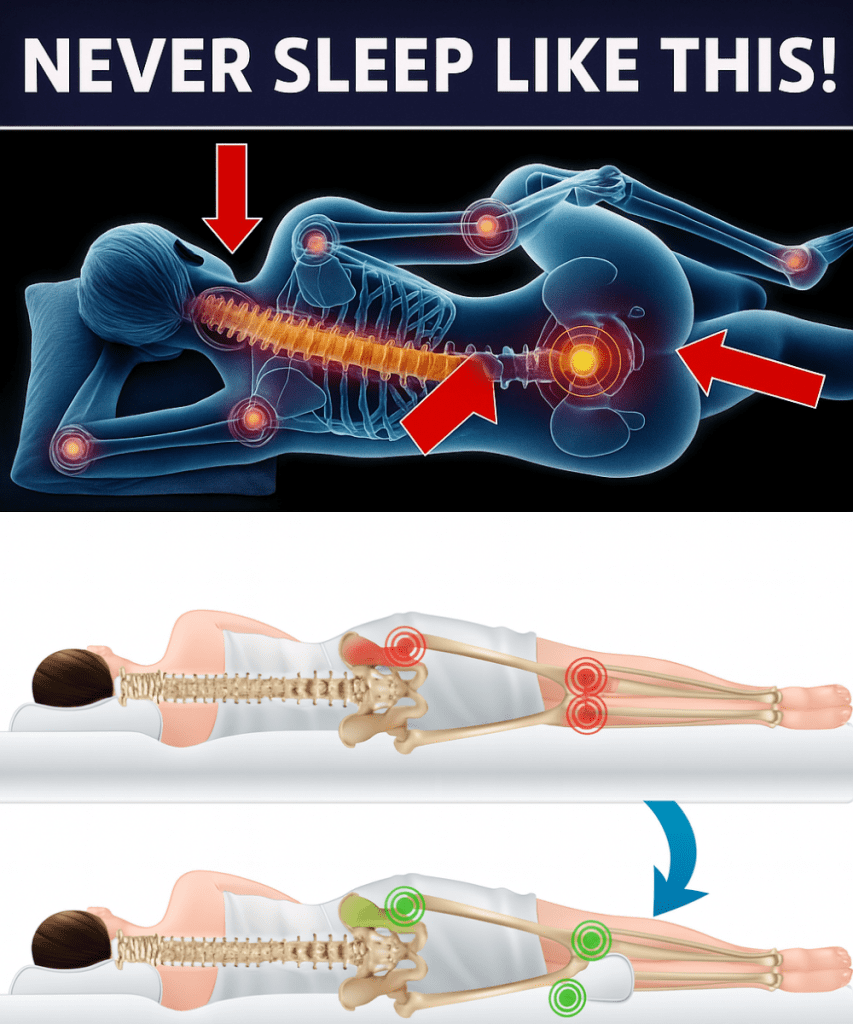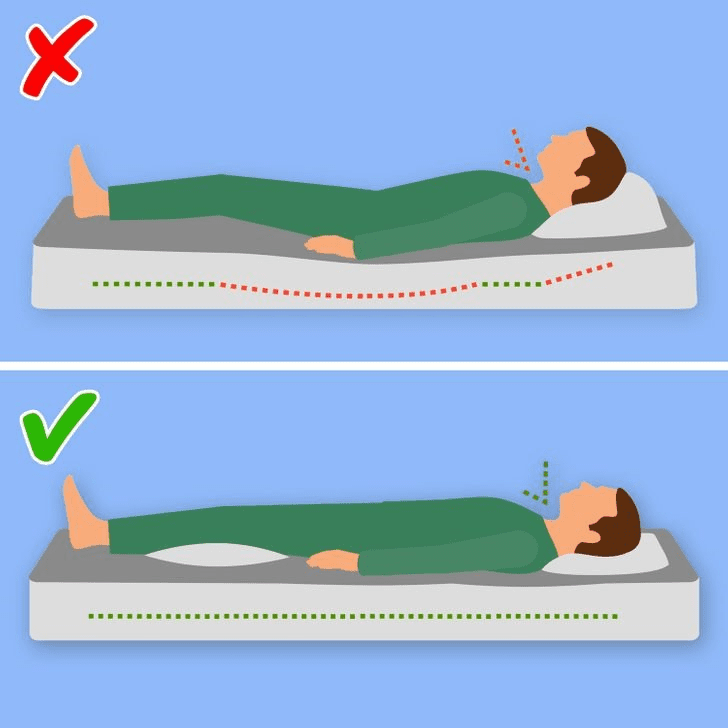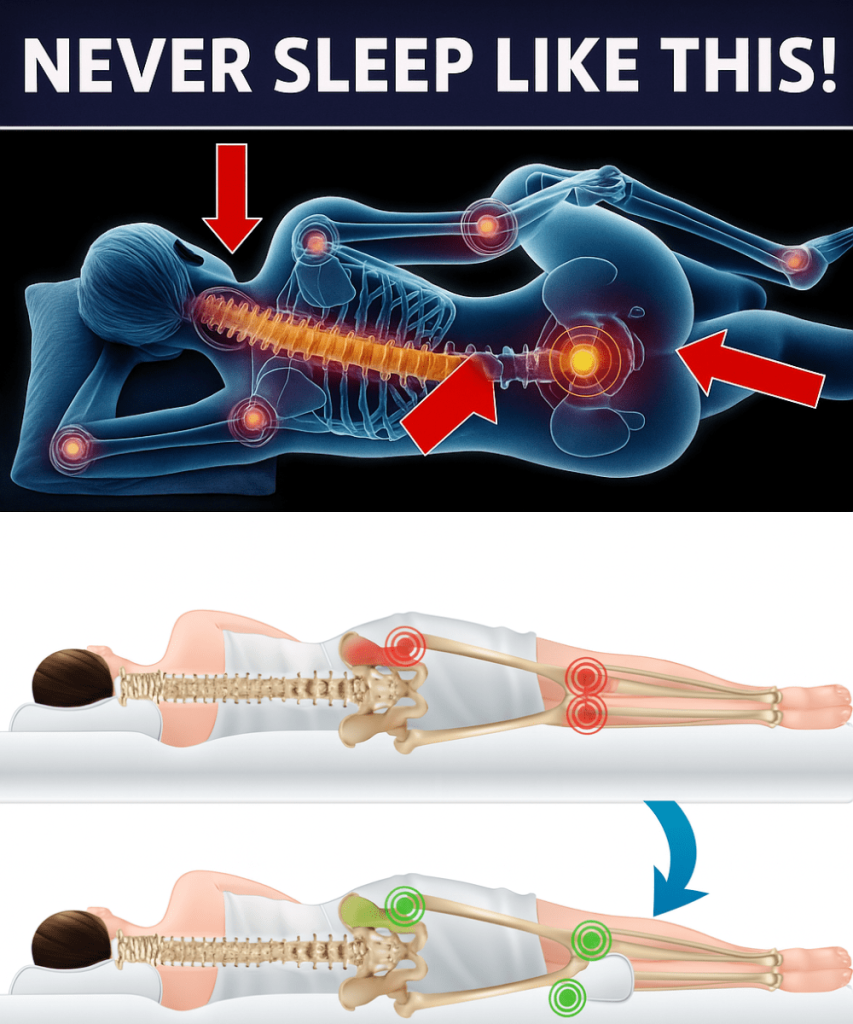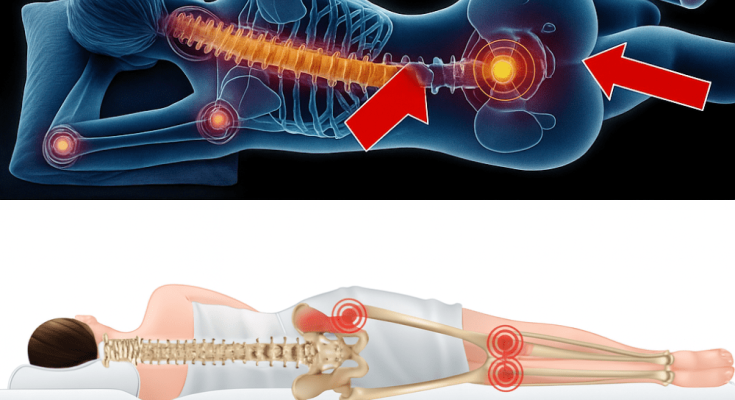Sleep isn’t just a luxury—it’s your lifeline. As we age, every moment of rest becomes a cornerstone for a sharper mind, a stronger body, and a longer life. Yet, millions of seniors are unknowingly trapped in dangerous sleep habits that quietly chip away at their vitality. These aren’t just minor inconveniences; they’re silent threats that can increase the risk of falls, memory decline, heart disease, and even premature aging. The good news? You can break free from these patterns starting tonight. Discover the 7 deadly sleep mistakes seniors must avoid and unlock simple, science-backed solutions to transform your nights and supercharge your days. Ready to wake up feeling unstoppable? Let’s dive in.
Comprar vitaminas y suplementos

 Falling Asleep with the TV Blasting
Falling Asleep with the TV Blasting
The soft hum of late-night TV might seem like a cozy way to drift off, but it’s a trap. The flickering blue light from screens suppresses melatonin, the hormone that signals your body it’s time to sleep. Sudden volume spikes or flashing visuals keep your brain in a state of semi-alertness, fragmenting your sleep cycles and robbing you of deep, restorative rest. Over time, this habit can lead to chronic fatigue, mood swings, and even cognitive decline.
Fix it tonight: Swap the TV for soothing audio. A calming audiobook, gentle music, or white noise can lull you to sleep without disrupting your brain’s natural rhythm. Keep your bedroom pitch-black—use blackout curtains or an eye mask to block out light. A timer on your audio device ensures it shuts off once you’re asleep, preserving the peace. This simple switch can boost melatonin production and help you wake up refreshed.
 Ignoring a Consistent Sleep Schedule
Ignoring a Consistent Sleep Schedule
Retirement often brings the freedom to ditch rigid routines, but an erratic sleep schedule is a silent saboteur. Going to bed at wildly different times each night confuses your body’s internal clock, making it harder to fall asleep and leaving you groggy in the morning. An inconsistent circadian rhythm can also increase the risk of heart issues, diabetes, and mood disorders—serious threats for seniors.
Fix it tonight: Commit to a fixed bedtime and wake-up time, even on weekends. Aim for 7–8 hours of sleep per night, ideally between 10 PM and 6 AM or a similar window that suits your lifestyle. Within just a few days, your body will sync up, making it easier to fall asleep and wake up feeling energized. Use a gentle alarm clock or sunrise simulator to ease into your mornings.
 Late-Night Snacking on Sugary or Heavy Foods
Late-Night Snacking on Sugary or Heavy Foods
That midnight cookie or bowl of ice cream might feel like a treat, but it’s a sleep wrecker. Eating sugary or fatty foods close to bedtime spikes your blood sugar, forces your digestive system to work overtime, and can trigger acid reflux or indigestion. These disruptions prevent you from reaching deep sleep stages, leaving you tired and sluggish the next day. Over time, this habit can also contribute to weight gain and metabolic issues.
Fix it tonight: Stop eating 2–3 hours before bed to give your body time to digest. If hunger strikes, choose sleep-friendly snacks like a small banana (rich in potassium and magnesium to relax muscles), a handful of almonds, or a warm cup of chamomile tea, which has natural calming properties. These choices stabilize blood sugar and promote rest without overloading your system.

 Relying on Sleep Medications Too Often
Relying on Sleep Medications Too Often
Popping a sleeping pill might seem like a quick fix for sleepless nights, but frequent use is a dangerous trap. Over-the-counter and prescription sleep aids can lead to dependency, memory problems, and a higher risk of falls—a major concern for seniors. Many also leave you groggy or disoriented the next day, impacting your quality of life. Long-term use has even been linked to an increased risk of dementia.
Fix it tonight: Work with your doctor to explore natural alternatives like melatonin supplements (used sparingly and under supervision), magnesium, or herbal remedies like valerian root or lavender. More importantly, address the root causes of your sleep issues—stress, anxiety, or an uncomfortable sleep environment—rather than masking symptoms. Relaxation techniques like deep breathing or meditation before bed can work wonders.
 Napping Too Long or Too Late
Napping Too Long or Too Late
A quick nap can feel like a lifesaver, but napping for too long or too late in the day can sabotage your nighttime sleep. Naps longer than 30–45 minutes, especially after 3 PM, reduce your sleep drive, making it harder to fall asleep at night. This can create a vicious cycle of daytime fatigue and poor nighttime rest, disrupting your energy levels and focus.
Fix it tonight: Limit naps to 20–30 minutes and take them early, ideally between 1–3 PM. This “power nap” boosts alertness without interfering with your nighttime sleep. Set an alarm to avoid oversleeping, and nap in a quiet, comfortable spot away from your bed to reinforce that your bedroom is for nighttime rest only.
 Skipping Morning Sunlight Exposure
Skipping Morning Sunlight Exposure
Natural light is a powerful regulator of your sleep-wake cycle, yet many seniors miss out on it. Staying indoors all morning weakens your circadian rhythm, delaying melatonin production and making it harder to fall asleep at night. Lack of sunlight exposure is also linked to low mood, vitamin D deficiency, and increased risk of cognitive decline—critical concerns for aging adults.
Fix it tonight: Spend 15–30 minutes outside in the morning, whether it’s a gentle walk, gardening, or sipping coffee on your porch. Even sitting by a bright window can help. Morning sunlight signals your brain to stay alert during the day and triggers melatonin release at night, helping you fall asleep faster and sleep more deeply.
 Sleeping in an Overheated Bedroom
Sleeping in an Overheated Bedroom
A toasty bedroom might feel cozy, but it’s a sleep killer. Your body needs to lower its core temperature slightly to initiate deep sleep, and a room that’s too warm disrupts this process. This can lead to restless sleep, night sweats, and frequent waking—especially if you’re dealing with menopause or certain medications. Over time, poor sleep quality can weaken your immune system and increase stress levels.
Fix it tonight: Set your thermostat to 60–67°F (15–19°C) for optimal sleep. Use lightweight, breathable cotton sheets and avoid heavy blankets that trap heat. If night sweats are an issue, consider moisture-wicking pajamas or a cooling mattress pad. A cool, comfortable sleep environment promotes deeper, uninterrupted rest and helps you wake up feeling refreshed.
Why Sleep Matters More Than Ever for Seniors
Quality sleep isn’t just about feeling rested—it’s a cornerstone of your health and longevity. Poor sleep has been directly linked to a higher risk of Alzheimer’s disease, heart disease, depression, and falls, which are among the leading causes of injury for seniors. On the flip side, good sleep enhances memory, strengthens your immune system, boosts mood, and even helps regulate blood pressure and blood sugar. Every night you sleep well is an investment in a sharper, healthier, more vibrant you.
Buy vitamins and supplements
 Take Control of Your Sleep Starting Tonight
Take Control of Your Sleep Starting Tonight
Transforming your sleep doesn’t require drastic changes—just small, intentional steps that add up to big results. Here’s your action plan to start tonight:
- Stick to a schedule: Pick a bedtime and wake-up time, and commit to it.
- Eat light at night: Avoid heavy or sugary foods close to bedtime, and opt for sleep-friendly snacks if needed.
- Embrace morning sunlight: Get outside or near a window for 15–30 minutes each morning.
- Create a sleep sanctuary: Keep your bedroom cool, dark, and tech-free for optimal rest.
These changes aren’t just about sleeping better—they’re about living better. Better sleep means more energy to enjoy your hobbies, sharper focus for meaningful conversations, and a stronger body to stay active and independent.
Your Next Steps for Lifelong Vitality
Sleep is one of the most powerful forms of self-care, especially as we age. By breaking free from these seven deadly sleep habits, you’re not just improving your nights—you’re reclaiming your days. Start with one or two changes tonight and build from there. Within a week, you’ll likely notice you’re falling asleep faster, waking up refreshed, and feeling more energized throughout the day.
Don’t let poor sleep steal your vitality. Take charge, make these simple tweaks, and rediscover the life-changing power of deep, restorative rest. Your body, mind, and spirit will thank you.



